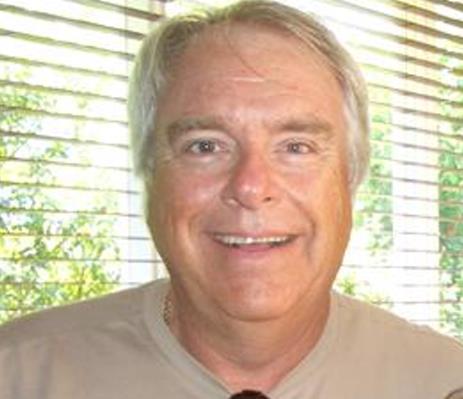
92514p.4
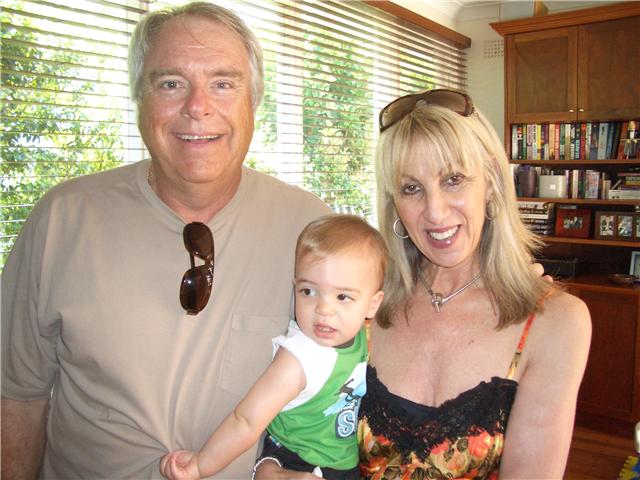
92514p Hilton Rosenthal grandchild Liam wife Lin Courtesy Hilton Rosenthal copyright 2009
Part 1 School
I attended Cyrildene Nursery School, and spent the rest of my school years at King David.
My King David academic life was ?spotty? ? there were some memorable years, in particular Grade 2 with Mrs. Sand/Hockman. In Form 1 I was put in the FF class, but hated it because nobody wanted to talk too much in class. From Form 2 on I dropped back to the A class and much preferred that.
I was a decent swimmer but an average ?B Team? soccer and rugby player.
When I was a child I showed an interest in music, but having arrived 10 years after my brother, in the interim my parents had sent their piano to relatives in Israel and couldn?t afford another one, so instead they bought me a piano accordion and sent me for lessons. I am not sure they had really thought it through ? a kid with thick glasses schlepping around this accordion ? probably the most ?dorky? look one could imagine at the time. The teachers often forced me to lug that thing around to sports days ? there was nothing I hated more!! However, in retrospect, perhaps it was the perfect instrument to give me a solid overall musical background?
In the middle of Form 4 I had a detached retina, and was forced to spend all of the 3rd term with both eyes covered after surgery. The only good thing to come out of that was that my first day back at school coincided with our Army medical examinations, and they took one look at a letter from my surgeon and I was exempted. In 1972 I had another detached retina and a number of follow-up operations, but in 1987 I had cataract surgery in both eyes at Cedars-Sinai Medical Center in LA, and now enjoy pretty good vision ? gone are the ?coke bottle? glasses and contact lenses.
After the first eye surgery I was told that I could not have ?anything heavy on my neck? and to my delight I was allowed to give up the accordion. I turned my attention to the guitar and soon after that, Appetites Temptation was born ? a rather ordinary band with Steve Selesnick on bass, Lenny Cohen on drums, and Russell Gordon (a mate from KES) on guitar. Every Saturday afternoon we would rehearse at Lenny?s parent?s house in Cyrildene but unfortunately much of what went on there is unprintable in a public forum J.
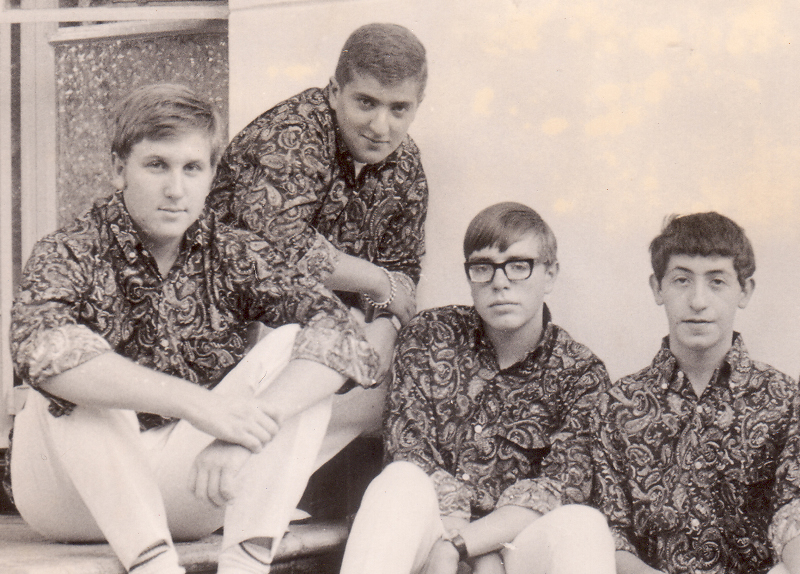
(G-d help us for coming up with that name!!) (Rosenthal)
Steve Selesnick (bass) Russel Gordon (rhythm or lead ) Hilton Rosenthal (lead or rhythm) Lennnie Cohen (drummer)
Courtesy Hilton Rosenthal copyright 2009 92682p.8
One thing I do recall is that Franco Piccollo became a big fan and spent many Saturdays on the couch in the living room staring at us while we played. (A few years later I heard that Franco was in jail for murder!). However, we did benefit from his ?friendship? ? one Saturday night we were playing at the Sydenham-Highlands North Shul Social, and Joey Sadie appeared in front of the stage smiling and gently throwing an egg up and down in his hand. At the end of that song, we noticed Franco and his mob at the back of the hall, so we stopped playing and went to tell Franco about the harassment we were experiencing. Needless to say this resulted in a war outside between the ?Porras? and the ?Lebs? and we continued our ?set? inside.
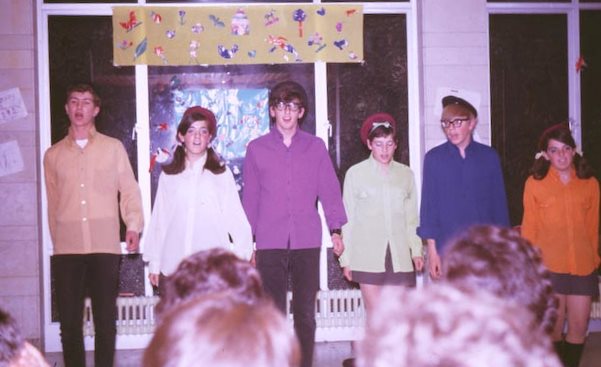
93394p
One Friday afternoon in 1969 as school ended, I heard someone say ? ?there?s a party tomorrow night in Saxonwold ? some chick called Linda Yudaken?. I didn?t end up going to that party but did meet Linda the following year and we married in January 1976. Our marriage has survived a crazy ride over 3 continents and 33 years. One of the main reasons for this is that I am a dreamer and Lin is my anchor.
Part 2
Family
We have 3 children: Terri (31), Tammy (28) and Nick (24). Terri is married to Gary Cohen and they have a son called Liam (18 months), and she is expecting another child in January. Tammy is married to Danny Been. For me, family has always been the most important thing in my life, and even though my life has included an enormous amount of travel and lengthy work hours, I believe I made numerous sacrifices in my career in order to spend a little more time with the kids. Now our grandson Liam brings Lin and I so much ?nachas? ? it?s just the greatest feeling in the world.
Career
In 1970 I started doing a B.Com at Wits. During my time there I partnered with a guy called Howard Harris, and ?Hilton & Howard? started playing gigs around Johannesburg. We had a regular spot at the first-floor bar of the Skyline Hotel, where the crowd usually ended up throwing bottles and furniture out of the windows. Our most remarkable shows were on Sunday afternoons playing at Bapsfontein, or Robinson Lake with Al Debbo. For 2 sheltered Jewish boys, we certainly experienced a different side of our South African ?culture? J.
After I graduated from university I had intended to follow that with a CA and MBA, but once I started work at a record company in 1973, I never left the ?business?.
I initially joined GRC (a JV between CBS Records and Gallo) in 1973 as a royalty accountant ? it was the only way I could get in. I progressed fairly quickly to head of Artist & Repertoire and then General Manager. At that time I was obsessed with finding a way to fuse indigenous music with western music and tried many experiments that did not work. One night I recalled seeing ?Johnny & Sipho? at Wits Great Hall a few years earlier and after a period of ?courtship? I signed them. Johnny Clegg was an anthropology professor and Sipho Mchunu an illiterate gardener. In 1979 we recorded and released an album titled Universal Men and decided to call the group Juluka. Marketing Juluka at that time was a challenging task. I was told they were ?too white for blacks? or ?too black for whites?. The only radio station that played them was the newly formed Capital Radio in the Transkei, but unfortunately they had transmitter problems and probably had no more than a thousand or so listeners at the time. Juluka started playing live gigs, but refused to play at any segregated venues so that too was difficult. A year later I resigned from GRC to start my own record company and bought Juluka out of their contract. In 1981 we released the second album titled ?African Litany?, which contained the song Impi. After a while Radio Zulu reluctantly started playing Impi because of popular demand ? little did they know that this stemmed from the fact that the song was a rallying cry for freedom in the townships! The ultimate irony is that many years later this song became the ?anthem? for Springbok rugby!!
In 1983 the song Scatterlings Of Africa started climbing the charts in the UK, and Juluka was invited to perform on a number of TV shows there. Unfortunately the group was denied a work permit because of the cultural boycott. This caused a furore in the UK media, saying that if the UK Musicians Union managed to silence Juluka they would have succeeded where the South African government had failed. They eventually capitulated and said that they would approve the permits if the group?s earning from those TV shows was donated to the anti-apartheid movement. This was agreed and although it was too late for many of the TV shows, the last couple went ahead. I arrived back in Johannesburg on a Sunday morning to open the Sunday Times and find a large headline on the front page saying ?Juluka gives money to anti-apartheid movement?. From that day on until 1987, when I left the country, my phones were tapped.
In 1984 I received a call from Paul Simon (introduced by the President of Warner Music USA). Paul had been listening to some South African music, and loved an unidentified song and wanted some information about it. I started doing some research and found out it was a 1968 recording called Gumboots. I told Paul that I knew the original musicians and could assemble them for a recording session, and asked ?What do you intend doing with it??. He replied that he had no idea, so I suggested he do an entire album of South African music. He asked ?How am I going to do that?? and I told him I could help. I sent him more than 30 different albums and he selected about 5 and asked me to set up recording sessions in Johannesburg, and so ?Graceland? was born.
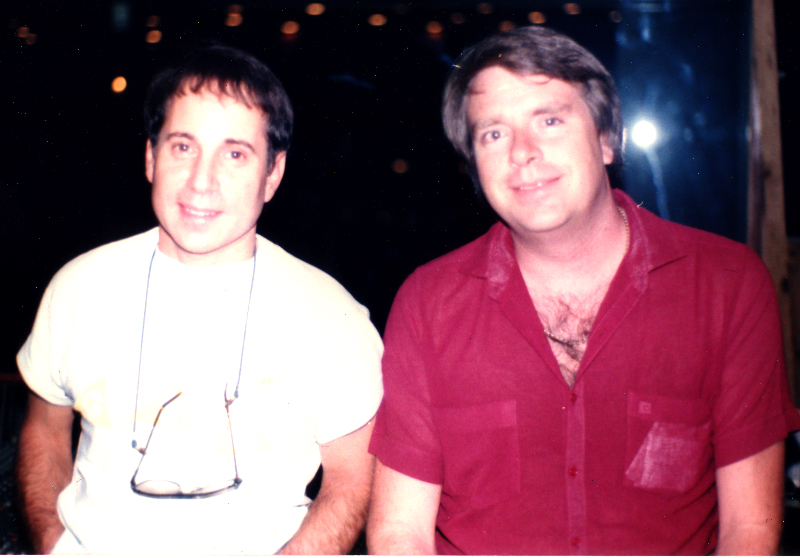
92517p.8 Paul Simon Hilton Rosenthal Courtesy Hilton Rosenthal copyright 2009 92517p.8
In January 1985 I conceived and organised a concert at Ellis Park to raise awareness and money for Operation Hunger. This concert lasted 12 hours ? half the acts featured were black and half white. The only multi-racial band was Juluka. I remember standing next to Louis Luyt while Juluka was playing and 120,000 people of all races, hands in the air, were singing ?we are all scatterlings of Africa?. Louis was shaking his head and had a look of total disbelief on his face. I did, however, experience one earth-shattering moment during that day. I walked into my back-stage office and Tsidiso Leshwayo, a radical journalist from the Sowetan newspaper was sitting there looking rather glum. ?What?s the matter? Isn?t this amazing??, I asked, and he replied ?Hilton, you are breeding fat slaves ? I would rather they died so the people will rise up to fight the system.? I was shocked and felt helpless. I was already thinking of leaving SA and this incident certainly contributed to my final decision.
In 1986 we went on our ?look-see? to LA. When we arrived in LA, I asked a friend who worked at the William Morris agency if he knew how I could contact Harry Belafonte. I had heard that Harry and Sidney Poitier were planning to film a mini-series about the life of Nelson Mandela and I wanted to play him ?Asimbonanga?, Johnny?s chilling anthem for the still-incarcerated Mandela. Amazingly Harry was going to be at William Morris that evening and we met. I played him the recording and as it ended he looked at me and said ?Do you want to produce my new album??
The move to LA was very difficult for Linda ? soon after we arrived I had to spend 3 weeks with Harry in a studio in New York!! Fortunately I managed to convince Harry that we should do the rest of our work at Capitol Studios in LA. At the same time, Natalie Cole was recording in studio A, David Lee-Roth in studio B and we were in studio C during the day, while the Red Hot Chilli Peppers blew the speakers every night in that same studio. I felt like I had arrived in heaven!!
We were very fortunate that in 1988 Johnny Clegg & Savuka became extremely successful in many places around the world, particularly in France. At one point, Johnny was booked to play at one stadium in Lyon, while Michael Jackson was booked in the other stadium on the same night. Johnny sold out 45,000 tickets and Jackson cancelled with 6,000 tickets sold. The press headline read ?It appears that the French prefer the white man who wants to be black rather than the black man who wants to be white?.
There are so many memorable moments through the years I have worked with Johnny. One particular highlight was the opening night at the Zenith in Paris. In the last song of the show, Johnny?s lonely voice started ?Asimbonanga? and 7,000 Frenchmen raised their lighters in the air and chanted the rest of the chorus in Zulu!! Chills ran down my spine, and at the end of the song Johnny came off the stage and fell into my arms and we both sobbed.
During the next few years in LA, in addition to producing Johnny?s albums, I worked as an independent producer and also flirted with the movie business, as music supervisor for ?The Power Of One? and producer of 3 songs for the animated feature ?Fern Gully ? The Last Rainforest?.
In the early ?90s I flew to Boston with Johnny to attend the Reebok Human Rights Awards. On the first night we were introduced to President Jimmy Carter and Senator Edward Kenney. The ex-President shook hands like a jelly fish, but the Senator had an awesome presence. I can only imagine how electrifying either of his slain brothers must have been! On the charter flight home, Jon Voight tapped me on the shoulder and said ?Hey Hilton, you said you live in the Valley ? I am in Sherman Oaks, do you mind dropping me at home on your way?? I was flabbergasted ? obviously Jon?s career was at a low. It was before his daughter Angelina became a superstar, contributing, I am sure, to his recent resurgence as an actor. Hollywood is a tough and fickle place.
Around that time I started my own label in LA and discovered an interesting niche ? it was the heyday of the ?fat-cat? record business and major labels had no interest in older artists who they thought could only sell 200,000?350,000 albums. This gave me an opportunity to sign artists like Carole King, Foreigner, Christopher Cross and REO Speedwagon.
I feel blessed to have had the opportunity to work with so many talented people. However, as one meets more and more of them, one realises that apart from the fact that all ?stars? have some quirkiness that fuels their creativity, basically they are just people and therefore reflect a cross-section of humanity ? some are real menches, some are regular guys, and others are simply assholes.
During the 1994 earthquake, I was standing in a doorway with 10-year-old Nick holding on to my leg. He was shaking, I was shaking, the house was shaking, windows were shattering, and things were flying around the room, and I thought ?What the hell am I doing here??. In short, LA allows for a great standard of living but little quality of life. Our girls were expressing thoughts that they did not want to return there after college, and Linda and I decided that it was not the place where we wanted to grow old ? alone. We visited Sydney in late 1996 and as a family we decided to move here.
Once again, unfortunately, our immigration was followed by a huge amount of international travel for me. My sister Greta was diagnosed with colon cancer, and in the 18 horrendous months till her passing, I was back in Johannesburg 5 times.
Also, prior to leaving LA I had co-founded a technology business that unexpectedly required me to travel to LA for about one week in every 6. It was the first company to sell a secure downloaded music file over the internet, exactly what iTunes launched 8 years later. However, in the late ?90s the music industry had no interest in supporting something that they said ?levelled the playing field?, and MP3 came along. So we repurposed our technology and started YourMobile.com, a website that allowed people to download ringtones to their mobile phones. After a few ?reinventions? of our mobile content business, we sold the company to Vivendi Universal and as a consequence of that transaction, I served as VP of International for VU Networks. This was the first time in 22 years that I had to work in a corporate environment, and needless to say, I did not enjoy it.
More recently I have returned to my ?creative roots?. I work from home, looking after my labels in South Africa and Australia and managing the copyrights that I own. I am in the process of creating and producing an interactive live musical show, and a new online songwriting venture.
I am thankful that this reunion and online community has forced me to sit back and reflect on the years. If I had it all to do again, I don?t think that I would change much at all, but if I had a wish to change one thing, it would be that apartheid never happened, and that I could have lived my entire life in a peaceful and secure South Africa. The ?real? South Africa is so full of colour, warmth, amazing peoples, and of course, the bush.
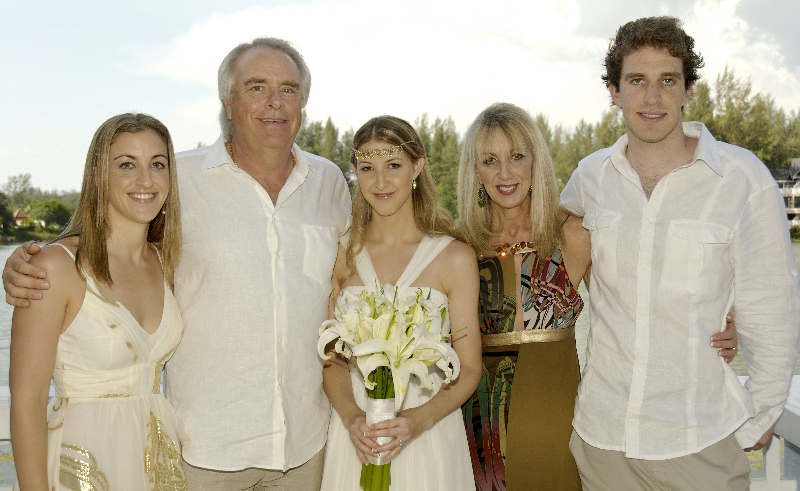
Terry, Hilton Tammy, Lin and Nick
92515p.8 Hilton Rosenthal Terry Tammy Lin Nick Courtesy Hilton Rosenthal copyright 2009
Business CV
In the record industry (submitted by Lindsay Leveen)
